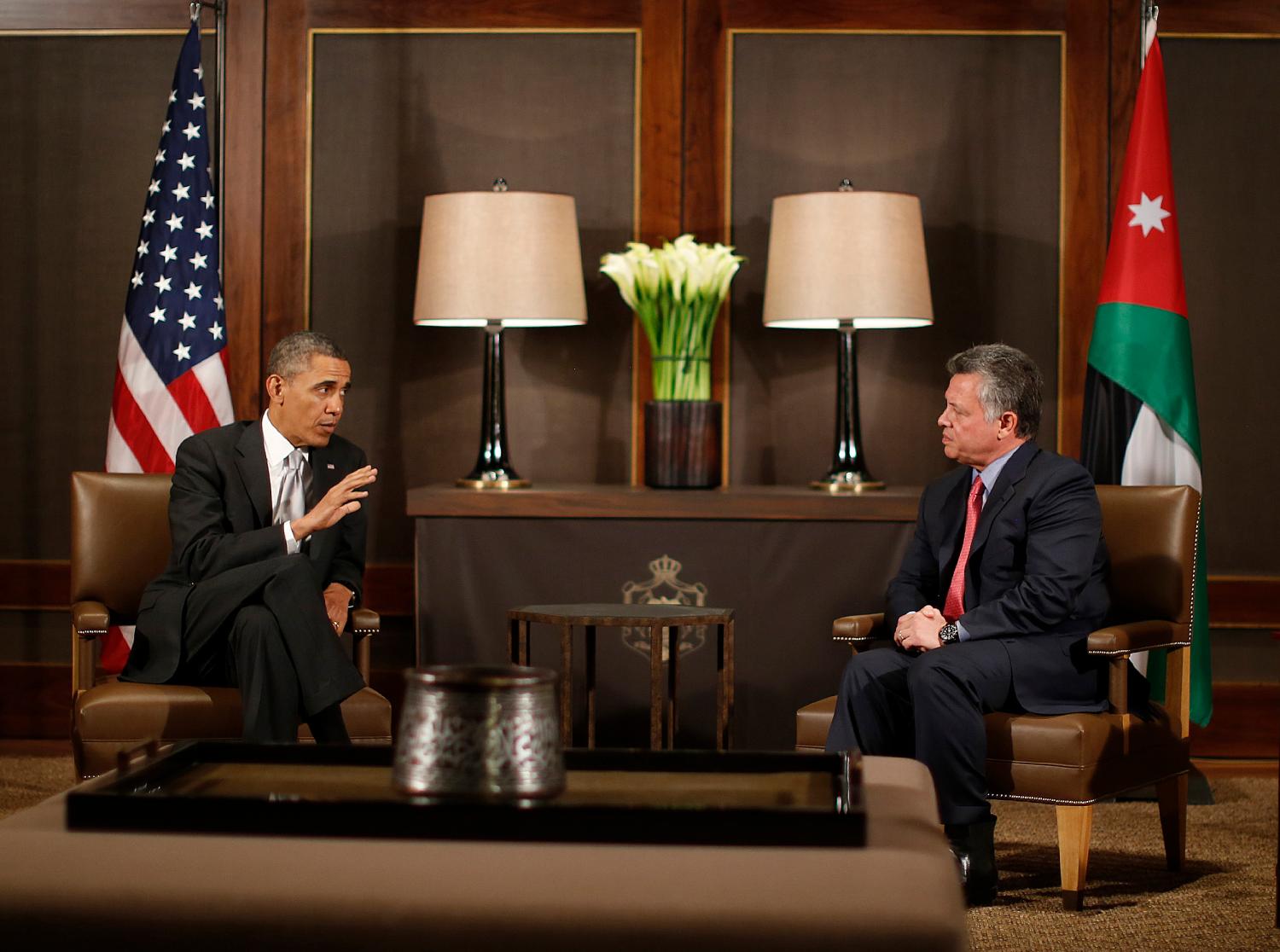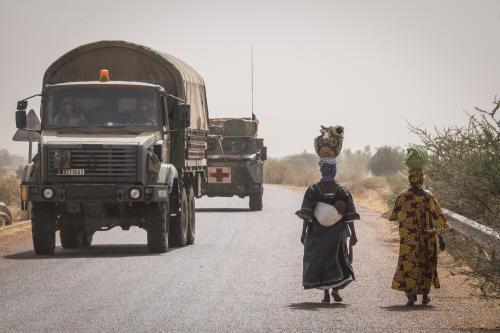Content from the Brookings Doha Center is now archived. In September 2021, after 14 years of impactful partnership, Brookings and the Brookings Doha Center announced that they were ending their affiliation. The Brookings Doha Center is now the Middle East Council on Global Affairs, a separate public policy institution based in Qatar.
Since September of 2014, Jordan has joined other Western and Arab coalition partners in striking Islamic State (IS) positions in Syria, with the country’s King Abdullah framing the war against IS as a “third world war.” How have conflicts on Jordan’s borders and now the country’s direct intervention strained the country’s resources? How have the country’s leaders presented their participation at home and abroad?
In a timely Policy Briefing based on field research, Sultan Barakat and Andrew Leber assess Jordan’s vulnerabilities to regional conflicts and domestic pressures. Despite broad public support for action against IS, they note a growing gap between state and society only exacerbated by adverse events such as the capture and uncertain fate of a downed Jordanian pilot.
Read “Fortress Jordan: Putting the Money to Work”
Ultimately, Barakat and Leber note Jordan’s strategic importance to its allies but caution against it playing a front-line combat role. The authors contend that reducing threats to Jordanian stability lies not in “taking the fight to IS” abroad, but in strengthening Jordanian society at home.
While calling for improved governance in the Kingdom, the authors note reluctance on the part of Jordan’s ruling elites and their allies to promote full-scale political reforms. Barakat and Leber contend that they should therefore channel their fears about regional instability and extremism into productive action on Jordan’s economy. This will entail restructuring aid flows to the country toward productive investment, selectively incorporating Syrian refugees into the workforce, and putting forward a credible vision for the country’s economic future.
The Brookings Institution is committed to quality, independence, and impact.
We are supported by a diverse array of funders. In line with our values and policies, each Brookings publication represents the sole views of its author(s).



